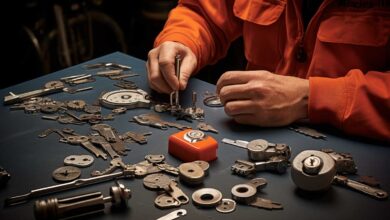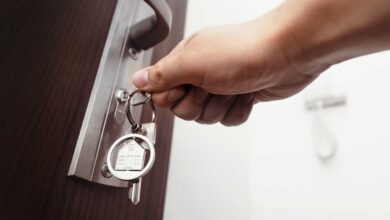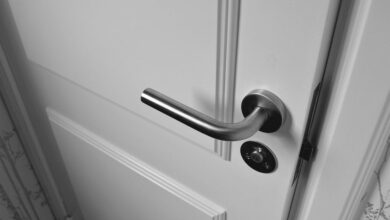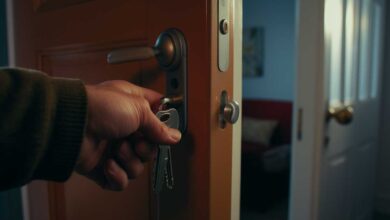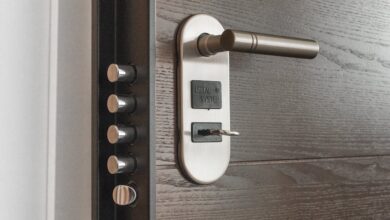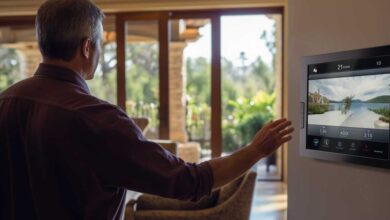Benefits of Having Spare Home Keys
KEY TAKEAWAYS
Having a spare key for your home is not just a matter of convenience; it’s a proactive measure that can save you time, money, and stress. Whether you’ve misplaced your keys, locked yourself out, or simply need to provide access to someone else, having a spare key can be a lifesaver.
In this article, we’ll delve into the importance of spare house keys and the numerous benefits they offer in a lockout situation.
What Are Spare House Keys?
A spare house key is an additional or duplicate key made for the locks in your home. While most homeowners have the primary set of keys they use daily, it’s advisable to have at least one or more sets of spare keys. These can be kept in secure locations, such as with trusted family members, friends, or hidden safely around your property.
Benefits Of Having Spare Home Keys
Having spare home keys can offer certain benefits, including:
Saves Time
Imagine the frustration of realizing you’ve locked yourself out of your home. Without a spare key, you’d be left with limited options, such as breaking a window, waiting for someone else with a key, or calling a locksmith. Having a spare key, especially if left with a nearby friend or relative, can drastically reduce the time you spend outside waiting for a solution. Instead of going through the hassle of finding a locksmith and waiting for them to arrive, you can simply retrieve your spare key and gain access to your home.
Saves Money
Emergencies often come with additional costs. If you find yourself locked out of your home during odd hours, calling a locksmith can be expensive, especially if it’s after regular business hours. Most emergency services, including locksmiths, charge extra for after-hours services. By having a spare key, you can avoid these additional costs. For instance, getting a spare key made at a locksmith shop might cost you around $20, but calling a locksmith for an emergency lockout could cost you upwards of $200.
Easier To Replace Keys
If you ever lose or break your primary set of keys, having a spare set makes the replacement process much smoother. It’s generally easier and faster to duplicate a key from an existing one than to make one from scratch by deciphering the lock. Moreover, if you need to have more keys made, having a spare means you won’t be without any keys during the duplication process.
Peace Of Mind
Knowing that you have a backup in case of emergencies can provide significant peace of mind. Whether it’s the fear of locking yourself out or the concern of misplacing your keys, having a spare set alleviates these worries. You can go about your day with the confidence that, even if something goes wrong, you have a backup plan in place.
Flexibility And Convenience
Spare keys offer flexibility. Whether you need to provide temporary access to a family member, a friend, or a service provider, having spare keys means you don’t have to hand over your primary set. This can be especially useful if you’re going on vacation and need someone to check on your home or if you have workers coming in for repairs or maintenance.
Constructing Your Own Spare Keys
Having spare keys is essential for various reasons, as we’ve previously discussed. But how are these keys made? The process of creating a duplicate key is known as key cutting. This procedure requires precision, expertise, and the right tools. Let’s delve deeper into the key cutting process and understand its intricacies.
Key Cutting Process
Key cutting is the process of creating a duplicate key from an existing one. This is typically done using specialized machinery and tools that can accurately replicate the unique cuts and grooves of the original key. The process ensures that the duplicate key will function just as effectively as the original.
DIY Key Cutting: Is It Feasible?
While some individuals might be tempted to try DIY key cutting, it’s essential to understand that without the right knowledge and tools, the process can be challenging and might lead to inaccuracies. A poorly cut key might not work or could even damage the lock. For quick and accurate results, it’s recommended to seek the services of a professional locksmith.
Cost Implications
The cost of key cutting can vary based on several factors, including the type of key, the complexity of the cuts, and the locksmith’s location and expertise. In Australia, for instance, copying standard keys can cost between $4 and $20. However, more intricate keys or those requiring specialized equipment might be priced higher.
Duration Of The Process
While a standard house key might take only a few minutes to duplicate, more complex keys, such as car keys or high-security keys, might take longer. On average, the key cutting process can be completed within 15-20 minutes.
Cutting A Key Without The Original
Losing the original key doesn’t mean you can’t get a duplicate. Experienced locksmiths can dismantle the lock, navigate its pins, and determine the shape of the key required. Some locksmiths can even create an impression of the lock using a blank key, eliminating the need to disassemble the lock.
Proof Of Ownership
While standard keys can be duplicated without any special permissions, high-security keys often require proof of ownership or authorization. This ensures that only authorized individuals can make copies, enhancing security.
Limitations In Key Duplication
Certain keys are designed to be non-duplicable for added security. These include:
-
Transponder Keys
-
Laser Cut Car Keys
-
VAT Keys
-
Abloy Keys
-
Tubular Keys
-
Internal Cut Keys
-
Four-Sided Keys
Such keys often come with a “Do Not Duplicate” (DND) label and require specialized equipment or authorization for duplication.
DIY Lock Installation And Replacement Tips To Consider
When it comes to home security, the locks on your doors play a pivotal role. Installing or replacing them might seem daunting, but with the right tools and a bit of patience, you can do it yourself. Here are some DIY lock installation and replacement tips to consider:
-
Measure For Replacement Lock: Before starting, measure the space where you’ll install the replacement. Ensure the diameter of the holes currently cut out of your door matches the new door lock. If you need to create new holes or enlarge existing ones, consider purchasing a hole saw set.
-
Match The Key: If you want the key for your new lock to match your other locks, make a note of the current brands installed on your doors. This way, you can order a similar key or select a lock that’s compatible with the existing key.
-
Remove The Door Knob And Replace Latch: Start by removing the screws from the door knob on the interior side of your door. This will allow you to pull the door knobs off from both sides. Then, remove the latch plate and replace it.
-
Remove Old Deadbolt: Follow the same steps used for the door knob removal. Remove the screws holding the deadbolt together from the interior side, then take out the two screws on the edge of the door and remove the bolt.
-
Install New Lock And Deadbolt: The long metal piece sticking out of the exterior knob is called the spindle. Install both knobs by sliding the spindle through the slot in the latch. Align the screws from the inside knob into the cylinders on the exterior door knob and tighten them. Finally, insert the new deadbolt.
Where To Store Your Spare Home Keys?
Storing your spare home keys is an important task that needs to be done carefully. It is always advisable not to leave them in obvious places like under the doormat, in the mailbox, or above the door frame, as these are the first places burglars will check. Instead, consider these more secure ways to hide your keys:
-
With a trusted neighbor or family member: This is one of the most common places to store spare keys. Just ensure that this person is reliable and trustworthy.
-
In a lockbox: You can purchase a lockbox and attach it to an inconspicuous part of your home. The lockbox can be opened with a code that you set.
-
Hidden in your yard: You can hide your spare key somewhere in your yard. However, avoid obvious places like under flower pots or the welcome mat.
-
In a fake rock: There are fake rocks available that have a hidden compartment for keys. These can be placed among other rocks in your yard.
-
In a magnetic key case: These cases can be attached to any metal surface. You can attach it to an inconspicuous part of your car or any metal structure in your yard.
-
At your workplace: If your workplace is secure and you trust your colleagues, you could keep your spare key in your desk or locker.
-
With a trusted friend: If you have a close friend who lives nearby, you could give them a spare key.
-
In a coded key vault: Some companies offer secure key vaults that can be accessed with a code.
-
In a safe-deposit box: If you have a safe-deposit box at a bank, you could store your spare key there.
-
In a hidden part of your car: Some people choose to hide a spare key in their car, either in a hidden compartment or tucked away somewhere.
Remember, the key is to avoid obvious hiding places and to ensure that the person or place you leave your key with is trustworthy and secure.
Common Hiding Spots For House Keys
-
Under a doormat
-
In a fake rock in the garden
-
In a flower pot
-
Under a deck
-
Inside a birdhouse
-
Behind a loose brick
-
Inside a magnetic key box attached to the underside of a car
-
In a doghouse
-
In a waterproof case buried in the garden
-
Under a garden gnome or other yard decoration
-
Hidden in the garage
-
Under a pile of leaves
-
Inside a hidden wall compartment
-
Inside a fake sprinkler head
-
In a hollowed-out book
-
Behind a picture frame
-
Inside a potted plant
-
In the mailbox
-
Under stones or pavers in the yard
-
Inside a key safe with a combination lock
Secure Location Options For Storing Keys
-
Safe Deposit Box: This is one of the most secure places to store keys. It is offered by banks and credit unions, and it is protected by high-level security measures like biometric access, 24/7 surveillance, and fire and flood protection.
-
Key Safes: Key safes are small lockable boxes that can be installed in an inconspicuous location in your home or office. They typically use a combination lock to secure the keys inside.
-
Key Management Systems: These are high-tech solutions that can be used in commercial settings. They require users to sign in and out keys, providing a clear record of who has had access to them.
-
With A Trusted Friend Or Family Member: If you trust someone implicitly, you could consider leaving a set of keys with them. However, this should only be done if you are very sure of their reliability.
-
Hidden Locations: This is a less secure option, but it might be suitable for a spare set of keys. However, you should avoid obvious places like under the doormat or in a fake rock.
-
Personal Safe: A personal safe in your home can be a good place to store keys, especially if it is bolted down or too heavy to move easily.
-
Lockable Drawer Or Cabinet: If you don’t have access to a safe or safe deposit box, a lockable drawer or cabinet can provide a level of security.
-
On Your Person: Keeping your keys in your pocket or bag ensures that they are always with you. Just make sure they are not easily accessible to pickpockets.
-
Key Chains: Key chains that can be worn around the neck or wrist can keep keys secure and easy to access.
-
Digital Key Lockers: Some modern properties now use digital keys. These can be stored securely in a digital key locker or cloud storage system.
Remember, the best place to store keys will depend on how often you need to access them and the level of security required.
Smart Lock Solutions For Keeping Your Home Safe And Secure
-
August Smart Lock Pro: This lock can be easily installed on the existing deadbolt of your door and allows you to control and monitor your door from anywhere. It also offers keyless entry and auto-lock and unlock feature when you arrive or leave home.
-
Schlage Encode Smart WiFi Deadbolt: This smart lock offers built-in WiFi connectivity, so you don’t need an additional hub. It supports up to 100 unique codes that can be used to lock and unlock the door. Furthermore, it’s compatible with Amazon Alexa and Google Assistant.
-
Yale Assure Lock SL: This keyless smart lock replaces your existing deadbolt and allows you to unlock or lock your door using a unique pin code. It’s compatible with Amazon Alexa, Google Assistant, and Apple HomeKit.
-
Google Nest x Yale Lock: This lock allows you to lock and unlock your door from anywhere and share access with guests. It enables you to check your door status anytime and gives you a history of who comes and goes.
-
Ultraloq U-Bolt Pro: This is a 6-in-1 keyless entry smart lock, with fingerprint and keypad and auto-lock, anti-peep password, and burglar alarm system. It can be controlled via smartphone and works with Alexa and Google Assistant.
-
Lockly Secure Pro: It offers multiple ways to access your home – through a smartphone app, offline access code, physical key, and fingerprint. It has built-in WiFi, so you can control and monitor your door from anywhere.
-
Kwikset Halo WiFi Smart Lock: This smart lock offers keyless entry and lets you create up to 250 unique user codes. It also allows you to monitor and control your lock from anywhere and is compatible with Amazon Alexa and Google Assistant.
-
Igloohome Smart Padlock: This isn’t a door lock but a smart padlock that can be used to secure a wide range of things, from gates to lockers. It allows you to grant access remotely and also has a security feature that masks your pin code.
Remember, while these smart locks provide added convenience and security, they should be used in conjunction with a comprehensive home security system for optimal safety.
Preventing Accidental Lockouts And Wrong Hands Getting The Keys
Accidental lockouts and misplacement of keys can result in various security issues, especially if the keys fall into the wrong hands. Therefore, it is crucial to have effective strategies in place to prevent such occurrences. One way to do this is by using smart lock systems that can be remotely controlled, eliminating the need for physical keys. These systems can be accessed through devices such as smartphones or computers, and provide features such as automatic locking after a certain period, or the ability to provide temporary access to guests or service providers.
This way, even if you forget to lock the door, the system takes care of it. And in case of lost devices, you can simply change the access codes or permissions. Moreover, these systems often come with activity logs, so you can monitor who accessed your property and when. This significantly reduces the risks associated with accidental lockouts and keys landing in the wrong hands.
Securing Your Spare Home Keys
Having spare home keys is not just a matter of convenience but also a necessity for maintaining your safety, security, and peace of mind. It helps avoid the hassle, cost, and anxiety associated with losing your keys, getting locked out, or needing access in emergencies. By entrusting a spare key to a reliable neighbor or family member or by using a secure key storage solution, you can ensure that you’re never left stranded outside your home. Indeed, the benefits of having spare home keys are too significant to ignore. So, if you haven’t made one yet, it’s high time you did.
Learn more about securing your home by reading our comprehensive guide on whether a locksmith can make a key from a lock. Visit Security Forward to find more information and browse through the available resources.
